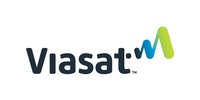With Frontline on the sidelines and Google’s end-game ever-mysterious,
what if the FCC held an auction and only half of the players showed up?
The 700 MHz auctions scheduled to begin shortly after this issue hits the streets was projected to raise some $20 billion for the U.S. Treasury. The auction, as structured by the FCC, was probably the most ambitiously composed to date, due largely to its classification as possibly the last great beachfront spectrum. Not only did the FCC offer opportunities for the incumbents, but it also provided special opportunities for public safety to resolve its emergency communications issues and for new players such as Google that sought a more open environment.
 |
|
Rhonda Wickham
Editor-in-Chief |
If you will remember, Congress mandated that some of the spectrum be set aside for a public safety network after emergency personnel from different departments had problems communicating during the Sept. 11, 2001, terrorist attacks. In response, the FCC developed a plan to defray the cost of building such a network by allowing the winning bidder to also offer commercial service, as long as first responders had priority during emergencies.
As for the Open Access portion of the auction, Google lobbied hard to get special consideration for non-incumbents. It won most of what it was seeking and has now filed both its application and submitted it down-payment to participate.
But what if these two main debutantes for the 700 MHz auction ball don’t even show up? What if public safety and the Googles of the world opt to stay home.
That possibility became just a little bit more real this week.
At press time, startup and 700 MHz auction hopeful Frontline Wireless closed it doors, shortly after the initial payments were due to the FCC to participate in the auction.
 |
|
Reed Hundt’s Frontline
closed its doors, shuttering plans to bid on the public safety block. |
Started by former FCC Chairman Reed Hundt and backed by Silicon Valley insiders, Frontline was fully expected to become the resident public safety license holder for spectrum to build out a national network for emergency first responders. Unfortunately, the well-connected company was unable to raise the money necessary to make a minimum bid.
A couple of problems now exist. If Frontline couldn’t come up with the necessary financing, I would be surprised if any other company will step up, effectively plundering the vision for that spectrum. Second, it has been conservatively estimated that such a network would cost some $10 billion to build out. The economic model doesn’t seem to fit the ultra competitive marketplace and probably places the concept as too risky for most financiers.
In the end, Frontline’s departure at this juncture doesn’t bode well for the public safety portion of this auction. While government and public safety officials were putting on a happy face and reiterating their commitment to the concept, the reality has to be sinking in. And that reality is, public safety interests and commercial interests are two different animals and sharing spectrum is not viable.
What has transpired with Frontline also tangentially affects the Open Access portion of the auction. Before Frontline’s departure, everyone seemed focused on what would happen if Google didn’t make the minimum bid of $4.2 billion. If Google didn’t pursue that spectrum with passion, it would revert to the FCC to re-auction to the highest bidder.
Conventional wisdom had the incumbents hedging their bets on their lowly spectrum options, but eying developments in the Open Access portion. If Open Access fell apart, they would pursue the better spectrum offerings in that portion.
But now with the possibility that the public safety portion also could end up in the same spot, incumbents now seem to have quite a bit of desirable spectrum to choose from. And they are motivated by the very pressing need for spectrum to continue building out their networks and serving up revenue-generating applications.
Which brings me back to my first point. It is possible now that these auctions will generate quite a bit less than the projected $20 billion. With Frontline on the sidelines and no one on the bench, the FCC likely will re-auction that spectrum. And if Google or some other open-access provider doesn’t fulfill the requirements in that block, that also goes back to the FCC for re-auction. If these scenarios play out, the auction becomes one supported largely by wireless carriers.
Filed Under: Infrastructure




